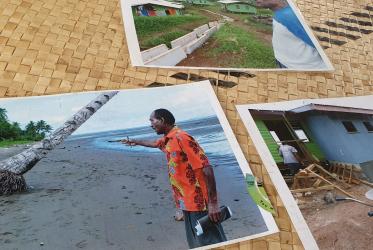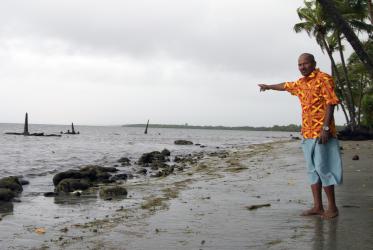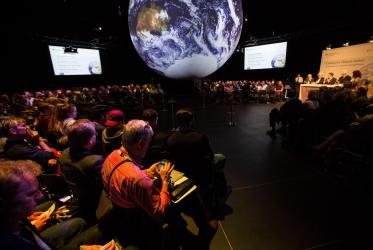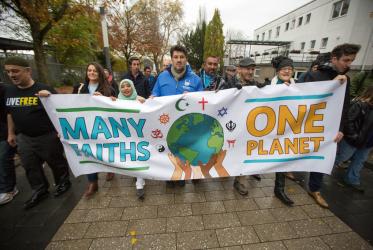Displaying 81 - 100 of 195
26 February 2020
CCIA meets in Brisbane with focus on Pacific regional priorities
19 February 2020
WCC welcomes new staff
11 February 2020
WCC’s interreligious YATRA Programme to be expanded globally
16 January 2020
In Fiji, young people ‘walk the talk’ with advocacy
12 September 2019
#WCC70: A story of life
07 June 2018
COP 23 “debriefing” brings faith and ethical perspectives
23 January 2018
WCC presents interfaith statement to COP23 high level plenary
16 November 2017











